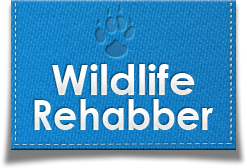Category: Wildlife Information
Ducklings In The Courtyard
When mallards begin nesting, they select a safe, seclude spot to hatch their eggs. An enclosed courtyard seems like the ideal location because few predators can enter and the ducks can fly in and out easily. However the ducks fail to recognize that this perfect spot will also be a trap for their ducklings, who … Continue Reading
Why Male Mallard Ducks Attack Female Mallard Ducks
It’s spring. Love is in the air. Ducks are pairing off and preparing to start new families. But something is definitely amiss. Why are groups of male mallards attacking a single, lone female mallard? Sex Ratios When mallards hatch and when the adult mallards migrate in fall, the ratio of male to female stays near 50:50. This … Continue Reading
Careers In Wildlife Rehabilitation
Careers in Wildlife Rehabilitation The majority of wildlife rehabilitation professionals are state and federally permitted volunteers. There are other opportunities to work in wildlife rehabilitation as a paying career. Typically, these positions are available through wildlife rehabilitation facilities or larger organizations such as a zoo or aquarium. In the public sector, state and federal agencies … Continue Reading
Ducks, Ducklings (and other wildlife) In The Pool
Ducks In The Pool Imagine how happy those ducks are; you were nice enough to provide them with a wonderful pool oasis, surrounded by great landscaping and safely enclosed from predators. It just didn’t occur to them that you didn’t do it for them. They’ve learned from repeated visits that it is a safe place to … Continue Reading
Candling Eggs
Before Candling Eggs… The information on this page is made available specifically for determining the stage of egg development in duck or goose eggs for the purpose of determining whether to intervene if it is suspected that the adult is no longer returning (to see if the eggs should be taken to a permitted wildlife rehabilitator) … Continue Reading
Cats Versus Birds
Preface: This series of articles related to TNR (Trap Neuter Return) are compiled by and are the opinion of the author, and do not necessarily reflect nor are intended to represent the opinions of this site’s membership. This information has been compiled specifically to provide resources to communities dealing with a proposed TNR implementation. My … Continue Reading
How To Become A Wildlife Rehabilitator
Wildlife rehabilitation is the process in which orphaned, injured and displaced wildlife are received into care by permitted individuals who are licensed and trained to provide the appropriate care so that the bird or mammal can be released back into its natural habitat equipped with the skills to survive long term. The majority of these … Continue Reading
Incubators
Incubators are a vital component in caring for neonatal mammals, hatchling birds, other orphaned wildlife, and eggs. Most very young animals need supplemental heat in order to survive. Fertile eggs also need constant heat (and humidity) in order to properly develop. The type of incubator to use is dependent on its intended purpose. Extremely young … Continue Reading
